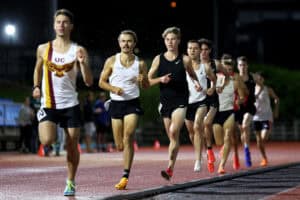Despite World Athletics receiving widespread criticism for its stance, Coe maintains that DSD rules are aimed at protecting the women's category in athletics.

With the global body facing an ongoing legal battle, as Caster Semenya prepares for a return to court, World Athletics boss Sebastian Coe says the organisation’s controversial gender regulations are not targeted at any specific individual.
Semenya has put up a lone fight in recent years against rules restricting athletes with differences of sexual development (DSD), which threaten to derail the career of the two-time Olympic 800m champion.
World Athletics has also been accused of targeting African athletes. Aside from Semenya, DSD rules affect the likes of 800m runners Francine Niyonsaba of Burundi and Margaret Wambui of Kenya.
“This has never been about personalities or a particular country or continent,” Coe, the World Athletics president, told African journalists in a virtual media conference.
“It’s a challenge we were confronted with and I think the sport has dealt with it in the best way it possibly could have done.”

World Athletics president Sebastian Coe. Picture: Getty Images
The athletics body’s DSD rules force hyperandrogenic athletes to reduce their natural testosterone levels in order to compete internationally against women over distances ranging from 400m to the mile (1 609m).
Though Semenya revealed earlier this year that she would switch her focus to the 200m sprint for the foreseeable future, in order to compete internationally, she was still fighting the regulations in court.
Having fallen short in previous attempts to have the rule overturned, at the Court of Arbitration for Sport and the Swiss Supreme Court, her legal team confirmed last month that they would file another appeal at the European Court of Human Rights.
Despite World Athletics receiving widespread criticism for its stance, Coe maintained that DSD rules were aimed at protecting the women’s category in athletics.
“The over-arching philosophy and principle is the concept of fairness in sport, which is a legitimate concern and forms a central element of sporting competition,” he said.
“It’s one of the pillars upon which our sport is based and we will continue, not just in DSD but in all other elements of our sport, to defend the equal rights and opportunities of women and girls to compete today and into the future at every level.
“That’s really where we sit on that.”
For more news your way, download The Citizen’s app for iOS and Android.
Support Local Journalism
Add The Citizen as a Preferred Source on Google and follow us on Google News to see more of our trusted reporting in Google News and Top Stories.






